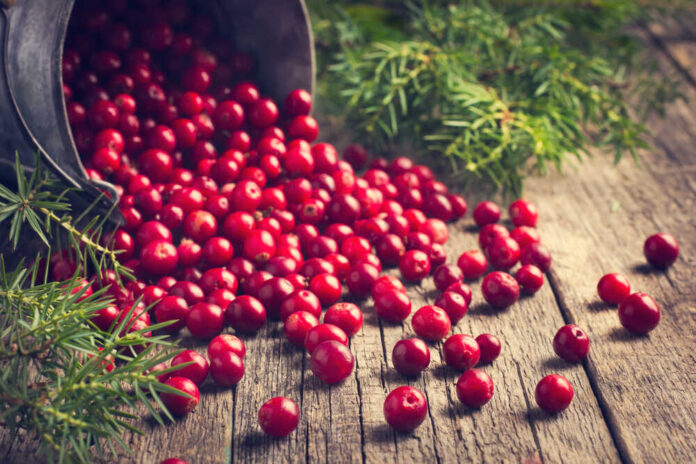
Urinary Tract Infections (UTIs) are an ailment that plagues countless individuals across various age groups and demographics.
While numerous remedies are available, the use of cranberry products as a preventive measure against UTIs has been a longstanding practice.
But do they truly work?
A fresh and exhaustive update of a research review carried out in April 2023 gives us a clear and nuanced picture of the situation.
A Deeper Dive into Cranberries
Cranberries are more than just a tart fruit found in sauces and juice cocktails. They contain proanthocyanidins (PACs), which are known to inhibit the adherence of p-fimbriated Escherichia coli to the bladder’s urothelial cells.
This action is thought to be at the core of cranberries’ apparent ability to prevent UTIs. But how has this relationship stood up to scientific scrutiny?
Comparing Cranberries to Other Treatments
The recent update on cranberry products in UTI prevention included a total of 50 studies with 8857 randomized participants. These studies ranged across different groups of participants and varied in quality, as assessed by Cochrane’s risk of bias tool.
The studies mainly compared cranberry products to either placebo, no specific treatment, or other interventions like antibiotics or probiotics. This comparison helps gauge the true effectiveness of cranberries against these other treatments.
Key Findings
The researchers found:several key patterns in the studies reviewed.
Reduction in UTI Risk
- Women with recurrent UTIs: A moderate certainty evidence suggests that cranberry products reduced the risk of symptomatic, culture-verified UTIs in this group.
- Children: Cranberries seemed particularly effective in children, reducing the risk by a significant margin.
- People susceptible to UTIs due to an intervention: The evidence here also indicates a notable reduction in risk.
Limited or No Benefits
- Elderly institutionalized men and women: Cranberry products might not have a significant effect on UTI prevention in this group.
- Pregnant women: The same goes for pregnant women, where the evidence doesn’t support cranberry’s effectiveness.
- Adults with neuromuscular bladder dysfunction: No discernible benefit was observed in this group either.
Cranberry vs. Other Remedies
- Cranberry vs. Antibiotics: The studies found no significant difference between cranberries and antibiotics.
- Cranberry vs. Probiotics: Compared to probiotics, cranberry products may indeed reduce the risk of UTIs.
Side Effects and Dosages
There were no clear gastrointestinal side effects between those taking cranberry products and those on placebo or no specific treatment. Compliance with therapy was not tied to the risk for repeat UTIs, and there was no noticeable difference between different doses of PACs.
Cranberry Supplements May Reduce The Risk of UTIs
The conclusion from this comprehensive update reveals that cranberry products can indeed be beneficial in reducing the risk of symptomatic UTIs in specific populations, such as women with recurrent UTIs, children, and individuals susceptible to UTIs following interventions.
However, their use may not be justified in the elderly, pregnant women, or those with bladder emptying issues.
This multi-faceted analysis of cranberries in UTI prevention not only validates some commonly held beliefs but also breaks down myths and unsupported practices. It fosters a targeted approach, illuminating the paths where cranberries may be an effective supplement, and where they might not be the silver bullet some hoped for.
By considering these details, healthcare providers, and individuals can make more informed decisions on the use of cranberry products, recognizing where they are a viable preventive measure and where other strategies must be pursued. The road to UTI prevention is a complex one, and the careful application of evidence-based practices like this can make it more navigable and effective.






















